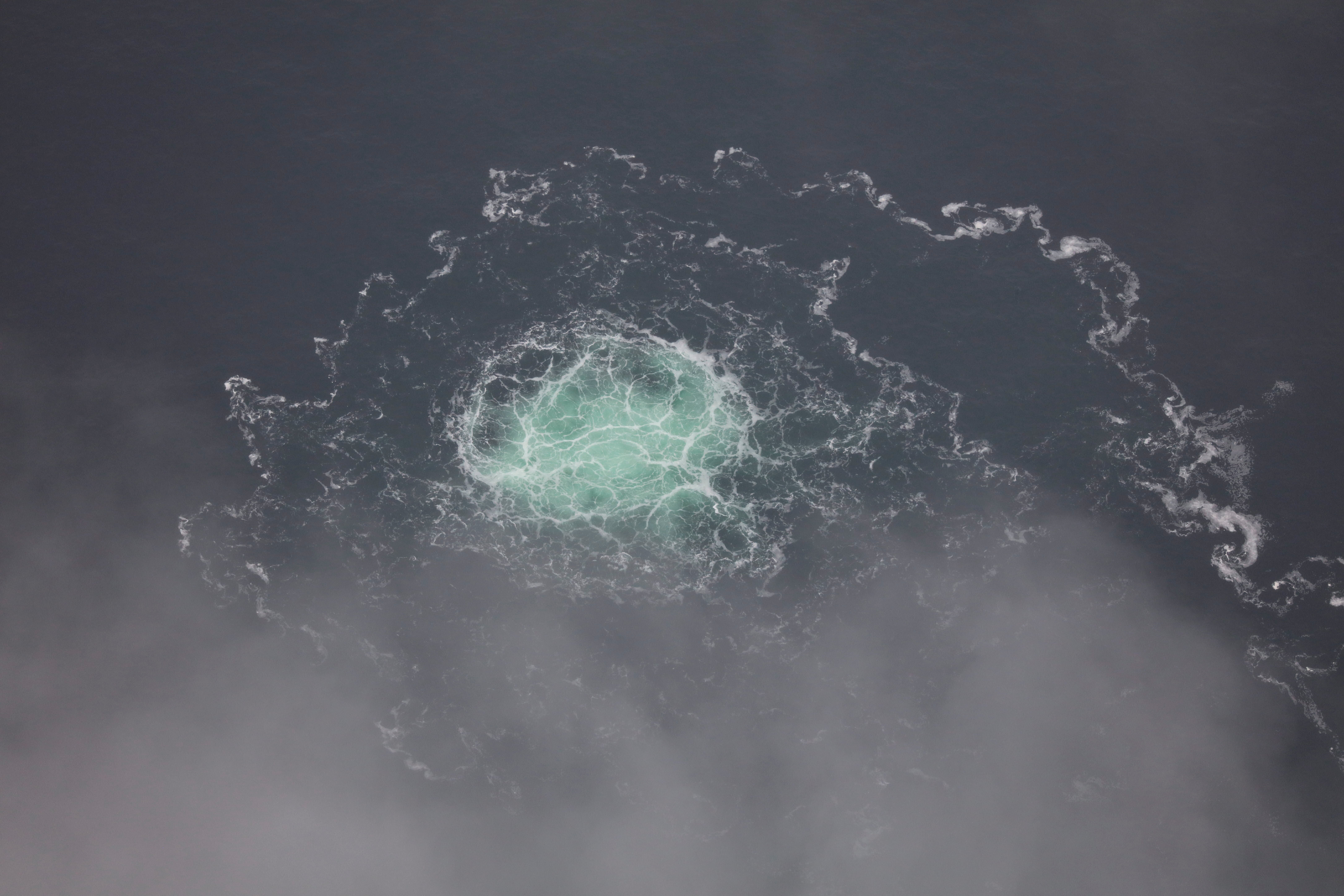Danes lift sailing ban in Nord Stream pipeline leak area
Denmark says it is lifting a sailing ban in the area of the Baltic Sea around the gas leaks caused by explosions that incapacitated the Nord Stream gas pipelines last year

Your support helps us to tell the story
From reproductive rights to climate change to Big Tech, The Independent is on the ground when the story is developing. Whether it's investigating the financials of Elon Musk's pro-Trump PAC or producing our latest documentary, 'The A Word', which shines a light on the American women fighting for reproductive rights, we know how important it is to parse out the facts from the messaging.
At such a critical moment in US history, we need reporters on the ground. Your donation allows us to keep sending journalists to speak to both sides of the story.
The Independent is trusted by Americans across the entire political spectrum. And unlike many other quality news outlets, we choose not to lock Americans out of our reporting and analysis with paywalls. We believe quality journalism should be available to everyone, paid for by those who can afford it.
Your support makes all the difference.The Danish Maritime Authority said Thursday that it was lifting a ban on sailing in the area of the Baltic Sea where gas leaked after the explosions that incapacitated the Nord Stream pipelines last year.
However, the agency said it was maintaining the restriction in areas where “anchoring, fishing and work on the seabed are discouraged within a distance of 1 nautical mile from the leak positions due to underwater obstacles.”
Shortly after the leaks, the agency issued a navigation warning and established a prohibited area to ensure ships did not sail nearby.
A total of four gas leaks were discovered on the Nord Stream 1 and 2 gas pipelines that run from Russia to Germany through the Baltic Sea, on Sept. 26 and 27 respectively.
The leaks were deemed an act of sabotage. Earlier this month, Swedish prosecutors said a state actor was the most likely culprit. However, they cautioned that the identity of the perpetrator was still unclear.
In March 2023, a German media investigation quoted unnamed officials as saying that five men and a woman used a yacht hired by a Ukrainian-owned company in Poland to carry out the attack. The Ukrainian government has denied involvement.
Two of the leaks were in the Swedish economic zone, northeast of the Danish island of Bornholm, and two in the Danish economic zone, southeast of Bornholm. All were outside national waters.
Both Swedish and Danish seismic measurements showed that explosions took place a few hours before the leaks were discovered.
Authorities and investigators in Denmark, Sweden and other countries early on suspected the explosions were deliberate attacks and consider them sabotage. The pipelines were not operational at the time, due to disputes between Russia and the European Union amid the war in Ukraine.
The United States and some of its allies have long criticized the pipelines, warning that they posed a risk to Europe’s energy security by increasing the continent’s dependence on Russian gas.